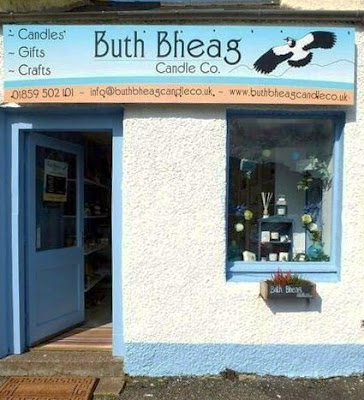The geology of these Islands is 3 billion years old - in fact, this is one of the oldest territories on Earth. The Isle of Harris is northernly, remote and rich in History, that's what Ultima Thule is all about.
Lying in a valley where North and South Harris meet, and set against a backdrop of rugged mountain peaks, Tarbert is the island's main port and capital village.
The Caledonian ferry at Tarbert, Harris
Tarbert lies on the shores of Loch Tarbert, and South Harris avoids becoming an island by just a few hundred yards of land over which the Vikings would drag their longboats into West Loch to avoid sailing around via the Sound of Harris.
Tarbert, Isle of Harris
Coordinates: 57° 53′ N, 6° 47′ W
Population: ~500
Pier Road, the town center: Hebrides Hotel (long, white), the Tarbert store (yellow), the Tourist information center (beige, right).
There are two villages on the Isle of Harris, Tarbert and Leverburgh (in the south). Tarbert lies on a narrow strip of land. The name Tarbert means “portage” or “ithsmus”.
Tarbert has most things that a person needs: besides the Tourist Information Centre (above), there is a small bank, post office, a hardware store, two hotels, a coffee shop, two grocery stores, a gift shop, the Harris Tweed shop, a fish & chips.
The famous Tarbert Stores
The Tarbert Stores, where you can find almost anything except food.
A traditional house and fishing hardware shop and ironmonger, also providing electrical services.
Heading now for the First Fruits Tearoom, a local must, with a gourmand offer in a friendly cozy atmosphere.
The tearoom is installed in Pier Road cottage.
First Fruits is a very popular place to spend some time waiting before the ferry leaves, if you can find a seat.
Main Street (or High Street) is a long and rather straight street from Pier Road to the Harris Tweed Shop, further west.
A yellow Hostel on Main Street
Main Street in a rainy day, as is quite often the case.
Buth Bheag, candles and fragrances, on Main Street.
There are several alternatives for guest accomodation, from Hotels to hostels and B&Bs; the Harris Hotel is surely one of the best offers.
The garden room.
Tarbert was founded as a fishing village in 1779, mainly for herring. From 1840 a new pier in Loch Tarbert allowed for a weekly mailboat service. By 1894 Tarbert was the main settlement on Harris, and a few years late Harris Tweed mill was set up here.
Tarbert harbour is the island’s main ferry terminal and also serves for boat tours to colonies of puffins and razor bills.
In 1964 the MacBrayne ferry started service on the Tarbert route. Fishing decayed and the port's main activity is now the loading and unloading of goods.
But Tarbert is mostly known as the home of the Harris Tweed Mill. This mill was established during the 1900s and became a major industry in Tarbert at the time.
Harris Tweed Shop
http://www.harristweedisleofharris.co.uk/index.php/27-harris-tweed/103-harris-tweed-isle-of-harris
Today the Harris Tweed shop is opened on the main road running toward the ferry terminal.
A tweed cloth handwoven by islanders at their homes in the Outer Hebrides.
Tarbert's Church of Scotland, built ca.1860.
Main Street and the port by twilight.
The Isle of Harris is one of the oldest geological terrains in the world, mostly ondulating rocks of gneisse covered with moss and dry grass, or flat wet moorland.
St. Clements Church,
or Tur Chlíamainn, in Southern Harris
St. Clements Church, dedicated to the patron saint of seafarers, is situated in Harris Island's southern tip, some 30 km south of Tarbert, and dates from the end of the 16th century.
The tower was built on the top of a rocky outcrop, a higher level ground than the nave.
St. Clements church is widely thought to be the grandest medieval building in the Outer Hebrides. The heritage building is now in the care of Historic Scotland.
Medieval celtic cross.
The interior of the church is impressive and atmospheric, and contains the finest examples of late medieval sculpture in the Outer Hebrides.
The carvings.
The arched recess of Alasdair Macleod's tomb (1528), in the south wall.
The arch surmounting the tomb has some unique Carvings with Gothic and Celtic motifs.
A sailing galley in the 1500s.
The pretty Razorbills
Besides Puffins, the Razorbills are a Nature attraction for tourists in the Isles.









































0 comments:
Post a Comment